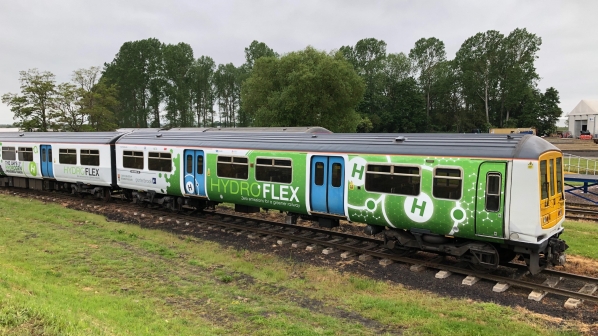“We note that the most cost-effective way to achieve net zero carbon may be to net off some residual rail emissions within the wider UK carbon reduction effort,” the task force says. “However, a number of key decisions have to be taken from this point on, with the clear target of net zero carbon by 2050 or before.”
To achieve this, the task force has made five recommendations in its final report:
- targets - the rail industry, including government, should support the target of net zero carbon by 2050 as proposed by the Committee on Climate Change (CCC).
- policy - the whole rail industry has responsibility to contribute to net zero carbon in a cost-effective manner, and the government should set out clear, consistent and enabling policies
- industry structure - from the Williams Review we should have an industry structure which effectively enables, incentivises, monitors and regulates the route to support delivery of net zero carbon
- delivery plan - Network Rail, passenger and freight train operators, and rolling stock leasing companies should publish a long-term plan to achieve interim and long-term targets towards rail decarbonisation which will be reviewed, monitored and regulated by a central body, and
- research and development - the industry should set out clear five-year research plans to reduce technical and implementation uncertainties.
However, the task force warns that significant decarbonisation can only be achieved by 2050
with a balanced and judicious mix of cost-effective electrification, coupled with the deployment of targeted battery and hydrogen technology where these are the best solution.
The task force says that more than 3000 vehicles used in diesel passenger trains will need to be replaced or converted in the years ahead, many of which are approaching the end of their life. Depending on the extent of electrification, up to 2400 coaches could be powered by low-carbon traction such as hydrogen and battery technology.
Carbon reduction
The task force says carbon should be viewed as a form of waste which comes with a cost and so carbon reduction should not be regarded as an end in itself, but as good business practice.
“Britain is leading the world on setting clear targets to reduce carbon, and so it’s critical that all industries play their part,” says Mr Malcolm Brown, the task force chairman. “Rail is ahead of the curve on the decarbonisation agenda, and our report shows that we can align with the government’s policy for the UK economy to be net carbon zero by 2050. We will need to fully exploit electrification, hydrogen and battery power to make this happen, but we also need all transport sectors to fully comprehend the challenge of decarbonisation.”
“Electrification must remain at the top of the hierarchy of options for the decarbonisation of our railways,” says Mr David Clarke, a task force member and technical director of Britain’s Railway Industry Association (RIA). “It is therefore essential that we begin a rolling programme of electrification for intensively-used routes, with alternative low-carbon traction options - like hydrogen and battery technology - used for lines where there would not be a business case for electrification.”

